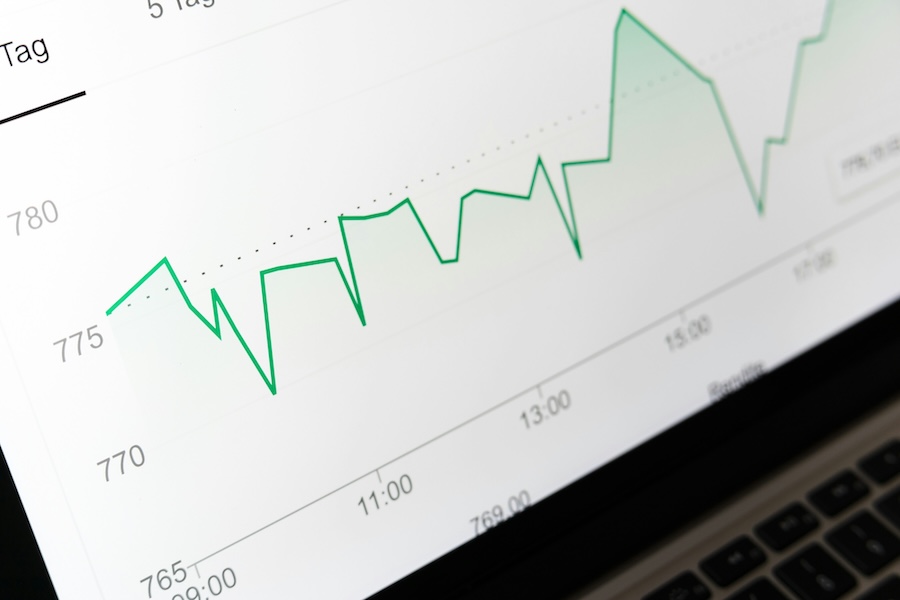Big data refers to large sets of unstructured, semi-structured, or structured data obtained from numerous sources, including customer databases, medical records, business transaction systems, social networks, mobile applications, and scientific experiments.
The importance of Big data in business can’t be underestimated, since it can have a significant positive impact on all types of internal and external processes. That’s why it’s important to understand how is Big data collected, why it can be beneficial to introduce such operations within an organization, and how it can support various industries. This article explores the correlations between Big data and business to showcase that investing in it can be highly advantageous for businesses of all sizes.
Impact of Big data on business
Companies are currently focusing on overhauling their data architecture, consolidating information, and discarding legacy systems. That’s a great approach since Big data is becoming commonly used, and not having it on board can deprive companies of a valuable source of intelligence essential for fact-based decision-making and overall growth.
Big data has a great impact on businesses since it helps companies efficiently manage large volumes of data. The statistics by Grand View Research Inc. prove that: The Big data market is expected to reach USD 123.23 billion by 2025.

Source: Unsplash
How do Big data and data mining affect global businesses? With the help of data analytics, companies aim to offer improved customer services. Enhanced customer experience is the primary goal for most companies. Other goals include better-targeted marketing, cost reduction, and improved efficiency of existing processes, leading to profit growth. Big data also has the potential to bring social and economic benefits to businesses. Therefore, several government agencies have formulated policies for promoting the development of Big data and also ensuring safety measures when Big data is used by companies.
Tech in Big data industry
Big data technologies help companies store large volumes of data while enabling significant cost optimization. Such technologies include cloud-based analytics and Hadoop, as well as custom solutions tailored to unique requirements of individual companies. They help businesses analyze information and improve decision-making. Furthermore, data breaches pose the need for enhanced security, which technology application can solve.
Over the years, Big data analytics has evolved with the adoption of agile technologies and the increase of focus on advanced analytics. There is no single technology that can encompass Big data analytics as a standalone solution. Several technologies work together to help companies procure optimum value from the information. Among them are machine learning, artificial intelligence, quantum computing, Hadoop, in-memory analytics, and predictive analytics. These technology trends are currently increasing the demand for Big data analytics.
Big data used to be mainly deployed by businesses that could afford the technologies and channels used to gather and analyze data. Nowadays, both large and small business enterprises are increasingly relying on Big data for intelligent business insights. Thereby, they boost the demand for Big data. Enterprises from all industries contemplate ways in which Big data and business can cooperate. Its uses are poised to improve productivity, identify customer needs, offer a competitive advantage, and scope for sustainable economic development.
Big data uses in business across industries
Finance, E-commerce, manufacturing, healthcare, automotive, and entertainment are some of the leading industries using Big data solutions. Business owners are increasingly investing in data analytics to optimize their operations and manage data traffic. Vendors are applying Big data to business operations, like better supply chain management or enhanced marketing.
Banking, financial services, and insurance (BFSI)
The BFSI sector extensively implements Big data and analytics to become more efficient, customer-centric, and, thus, more profitable. Financial institutions use Big data analytics to eliminate overlapping, redundant systems as well as providing tools for easier access to data. Banks and retail traders use Big data for sentiment measurement and high-frequency trading, among others. The sector also relies on Big data for risk analytics and monitoring financial market activity.
Healthcare
Health-related businesses are increasingly turning to Big data solutions, which have the potential to revolutionize numerous areas of operations, including patient monitoring, internal efficiency, hospital resource management, and early detection of lethal diseases. Big data in healthcare strongly contributes to improved prevention and therapy results by analyzing large datasets full of cell imagery and test results. This way, scientists can identify patterns that lead to certain illnesses, assess treatment effectiveness, and compare various factors that can influence particular health conditions.
Pharma
Pharmaceutical companies utilize Big data for medicine discovery and development in a more predictable and effective way. They can identify potential drug candidates and test their safety in more controlled environments thanks to Big data research that enables these brands to recruit suitable patients, monitor their responses in real-time, and analyze large amounts of medical data generated during clinical trials.

Source: Unsplash
Retail
The retail industry gathers vast amounts of data through RFID, POS scanners, customer loyalty programs, and from sales reports. The use of Big data assists in operational optimization, customer experience enhancement, fraud reduction, and inventory management. Retailers can dive deep into consumer shopping patterns and preferences, as well as market trends, to create targeted marketing campaigns and personalized offers or discounts.
E-commerce
The importance of Big data for E-commerce business is clear enough: the more you know about your customer, the more profits you generate from your e-store. Data on real-time customer behavior, purchasing history, and products allow tracking high-demand products and forecasting trends to be the first in the market to introduce best-selling products. Pricing analysis, inventory management, and customer churn prediction – are only a few more things the technology can do for business. The key to success is to be able to offer an extraordinary customer experience that makes customers pay a higher price, and this is where the technology becomes your business partner.
MarTech
The hybrid of marketing and technology referred to as MarTech relies heavily on Big data. Marketing and sales activities couldn’t contribute to business goals and achieve ambitious objectives if it weren’t for data analysis. Such departments collect data from a multitude of sources, including social media, website interactions, industry portals, email inquiries, feedback forms, or even single brand mentions online.
Knowledge of customer behaviors, demands, and purchasing history allows marketers to create laser-focused advertising campaigns, increase engagement, and build a strong leadership position for the brand. Moreover, Big data is also necessary to run automation initiatives that can accelerate marketing efforts. All these moves lead to optimized spending, growing lead generation, and maximized ROI. Marketing teams can also use data insights to measure their success rates and flexibly adjust campaigns to emerging tendencies or requirements.

Source: Unsplash
Sport and wellness
Big data has become a game-changer in the sports and wellness industry by providing insights into both athlete performance and marketing-related activities like fan engagement, consumer behavior, and sales trends. Sports teams and organizations can use data analytics to optimize their players’ results and make informed decisions during tournaments and competitions. Fitness brands can use Big data collected from wearable devices and trackers to understand their customers and provide personalized services like diet plans and workout routines. Additionally, they can adjust recommendations to health conditions and individual fitness goals.Thanks to Big data efforts, sports franchises can create unique, successful marketing campaigns and improve omnichannel fan experiences in both physical locations and through digital platforms.
Media and entertainment
In the media and entertainment industry, Big data transfers all possible areas: from content creation to distribution and promotion. From gaming, to music and video-on-demand, companies use datasets gathered from their audiences to curate content adjusted to viewers’ preferences, power recommendation algorithms, and achieve sales goals. Big data also enables media brands to target advertising more effectively and maximize revenue generation. They analyze audience sentiment and forecast upcoming trends to inform decision-making processes, too.
Manufacturing
A large amount of data generated in this industry remains untapped. The industry faces several challenges, such as labor constraints, complex supply chains, and equipment breakdown. The use of Big data helps manufacturers to discover new ways to save costs and improve product quality.
Thanks to predictive maintenance algorithms, businesses can anticipate equipment malfunctions early on to reduce downtimes. However, Big data proves itself to be the most useful when it comes to streamlining supply chain management. Analyzing inventory levels to deliver materials on time mitigates the impact of potential workforce shortages and improves the overall productivity of the whole company.
Logistics
The logistics sector can take advantage of Big data to improve performance in supply chains, level up operations, and tweak their workflows to achieve excellent efficiency. Forecasting demand, optimizing inventory levels, and elevated route planning are only a few examples of how data analytics can serve for better transportation and delivery. By collecting large datasets from sources such as GPS trackers, RFID tags, and IoT devices, logistics companies can track shipments in real-time, quickly find bottlenecks, and react proactively to mitigate potential risks that could lead to delays.

Source: Unsplash
Automotive
Big data fuels significant transformations in the automotive niche, from reshaping vehicle production processes to powering autonomous driving capabilities. Carmakers can leverage technological advancements and data analytics to boost all their operations, from manufacturing to logistics and customer experience. Modern cars generate information on their own thanks to being connected to the internet. This gives brands data on diagnostics, driving behaviors, and road conditions, enabling the offering of individual maintenance services and helping develop safety features.
Oil and gas
In the oil and gas sector, Big data facilitates decision-making. Companies can make better decisions regarding the location of wells and optimal drilling strategies through an in-depth analysis of geological conditions and terrain geometry. A data-driven approach allows such businesses to minimize risks and maximize resource extraction. It can also contribute to enhancing safety protocols.
Challenges in harnessing Big data
While many companies and industries recognize the potential benefits of leveraging Big data for business growth and optimization, several challenges present themselves in that area. Not being aware of them can slow down the adoption of data analytics or lead to unsatisfying results. Addressing them accordingly will allow businesses to achieve their goals, but requires effort, investments, cultural shifts, and talent acquisition. What are the obstacles to keep in mind?
Cost of introduction
Implementation of Big data solutions requires higher budget upfront. However, the investment in tech infrastructure, software licenses, staff training, and hiring provides benefits in the long run and is necessary to achieve assumed objectives.
Underutilization of data
Many companies collect large amounts of data, but are unable to use it to its full potential. It can be that way due to several reasons, the most popular being lack of awareness or limitations in tech or resources. When portions of data remain unused, the results are incomplete and less valuable.

Source: Unsplash
Silos and data fragmentation
Another common challenge to consider is complicated, unstructured data ecosystems within organizations. Frequently, departments operate in isolation, and they don’t share information with other teams. Building a workflow for Big data collection allows brands to increase the effectiveness of Big data projects and achieve a holistic view of their business operations.
Data quality and consistency
Inconsistencies in data formatting and quality can lead to poor results. That’s why it’s so important to ensure the right structure of datasets and their integrity. Getting rid of inaccurate or incomplete data is essential to maximize the value of data analytics. Without proper cleaning, insights produced by Big data algorithms can flaw the decision-making processes.
Skills gap
Finding qualified and experienced specialists is crucial to running Big data operations smoothly and successfully. Data scientists and analysts are required on board to make sure that all the activities, including data cleaning, statistical analysis, setting up algorithms, and creating reports are done according to the state-of-the-art and organizational goals. Hiring efforts should be kickstarted early since Big data experts are in high demand. Moreover, bridging these skill gaps requires investments in training and talent development for the existing staff.
Conclusion
The Big data industry is expected to witness remarkable growth in the upcoming years. An important reason is a rapid increase in the amount of structured and unstructured data. The increased technology penetration in all spheres of life and the spread of mobile devices leads to generation of larger amounts of information that can be used by businesses to meet their customers’ needs and achieve their goals.
Also, the rise of broadly available AI algorithms that boost data analytics and enable brands to achieve more valuable results much faster is another factor to keep in mind. The escalating need for analyzing data will lead to an all-time high demand for Big data specialists who are aware of artificial intelligence tools.
The number of online businesses in the industry is also growing, owing to enhanced profit margins. The smart application of Big data in everyday business life allows for data-driven decisions and prompt responses to market developments, which have direct business impacts on the bottom line. The competition in all industries is constantly increasing, giving businesses no chance for mistakes and requiring end-to-end analytics and technology-based tactics implemented to stay competitive. All the factors mentioned above are expected to contribute to the growth of the global Big data market.



